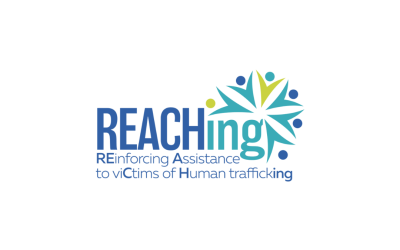Promote gender equality in the formal and informal disability care and support sectors. Challenge stereotypes, foster inclusive workplaces, and advocate for policy reforms, encouraging a more equitable distribution of caregiving responsibilities and improving working conditions across the sector.
Context
Women continue to bear the majority of caregiving responsibilities, both in formal and informal settings, reinforcing gender inequality in the labour market. In the EU, 73% of Europeans acknowledge that women spend more time on care and housework than men[1]. Gender stereotypes persist, as 44% of Europeans believe a woman’s primary role is to care for her home and family[2]. In the formal care sector, women dominate the workforce but remain underrepresented in leadership roles, facing occupational segregation, lower wages, and limited career advancement. The European Care Strategy and long-term care recommendations call for reducing gender imbalances, improving working conditions, and encouraging more men into caregiving roles. However, challenges remain due to persistent stereotypes, a lack of work-life balance policies, and undervaluation of care work.
[1] Special Eurobarometer 465 (2017), Gender Equality 2017, [EBS 465], available at: http://ec.europa.eu/commfrontoffice/publicopinion/index.cfm/Survey/getSurveyDetail/instruments/SPECIAL/surveyKy/2154
[2] Report on equality between men and women in the EU, European Commission, 2018
Objectives
- To identify the barriers to gender equality in caregiving, both formal and informal, by researching existing stereotypes, best practices, and effective strategies, aiming to challenge outdated perceptions and highlight the value of care work.
- To strengthen the capacity of employers and workers in the disability care sector to reduce gender discrimination and biases.
- To enhance general awareness of the gender care gap and of ways to address gender stereotypes related to informal care through gender-transformative approaches.
- To raise awareness among key stakeholders on driving long-term change in gender equality within the care sector.
Activities
- Desk and field research on formal and informal long-term care, identifying biases, barriers, and best practices to promote gender equality.
- Developing a Training and Awareness Raising Manual for employers, HR, management and care professionals in the disability care sector.
- Developing a Toolkit for building and inclusive workplaces in the disability care and support sector with strategies and tools for employers to implement gender equality policies.
- Train-the-trainers’ workshops for equipping expert trainers on gender equity in the disability care sector.
- National training sessions for (1) managers, HR and(2) employers in the disability care sector on gender equity in the workplace.
- European workshop “Strategies for gender equality, work-life balance, and inclusive workplace cultures in the disability care sector” held alongside the annual EASPD conference, to equip managers with practical strategies and insights that empower both employers and the workforce in promoting gender equality, work-life balance, and inclusive workplace cultures.
- Webinar series “Empowering gender equality in informal caregiving” for informal carers and advocacy groups on the promotion of gender equality in caregiving roles.
- Gender-inclusive awareness campaign on care and caring to promote a gender-transformative approach, and challenge gender norms, roles and stereotypes in both formal and informal care.
- Policy recommendations to close the gender care gap, promote pay equity, and ensure legal compliance.
- National multiplier events to promote a gender transformative approach to care and caring challenge gender norms, roles and stereotypes in both formal and informal care.
- Final conference to present project outcomes to EU and local stakeholders in Brussels.
Resources
- Insight report on gender stereotypes in care – an analysis of best practices, key stakeholders, and learning gaps across partner countries, with an executive summary for EU and national promotion.
- Manual “Empower care” – a 10-hour course promoting gender equality in disability care for employers, HR, and care professionals.
- Toolkit “Gender equality for disability care” – a resource for employers with guidance, self-assessment tools, checklists, templates, and real-life case studies to foster inclusive policies.
- Informational materials – including posters, leaflets, and guides to support carers in achieving a healthy work-life balance.
- Policy Recommendations – strategic proposals to address gender disparities, promote equality, and enhance workplace inclusivity in disability care.
Impact
- Greater understanding of gender equality barriers across 7 countries and the EU, particularly in caregiving, domestic work distribution, and access to family leave and flexible work arrangements.
- Strengthened skills and knowledge among 18 project staff on gender equality and family-friendly workplace policies in the disability care sector, fostering recognition of the need for proactive measures to address disparities and discrimination.
- Enhanced capacity of 60 employers, HR professionals, and care workers through national-level training using the Manual and Toolkit, and 300 EU workshop participants having gained practical strategies to promote gender equality, work-life balance, and inclusive workplace cultures.
- Stronger recognition of gender disparities in care work among targeted organisations across Europe, particularly in informal caregiving, through webinars engaging 40 participants.
- Greater public awareness of gender balance in the workforce by promoting women in leadership roles and encouraging a more equitable participation in care work, challenging traditional gender stereotypes, engaging 50 participants through national multiplier events and 80 participants in the final conference.
Partners
- EASPD (coordinator, Belgium)
- CESIE ETS (Italy)
- Eurocarers (Belgium)
- Associacion Fress (Spain)
- PJDC (Lithuania)
- Margarita Vocational Training Center (Greece)
- Social Employers (Belgium)
- IAT (Slovenia)
- TUKENA (Finland)
- Chance B (Austria)









